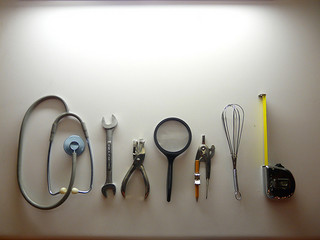We write a lot about graduating from universities and finding a job. What we, and I certainly don’t stress often are the vocational courses. Now, one may ask how I can comment on vocational courses when I have done a degree myself.
Well, the answer is – I did a diploma. And during my diploma in Mechanical Engineering I did courses on the side, which included plumbing, carpentry, machine operations like lathe and CNC, etc. I enjoyed these courses. What they gave me was a practical understanding of theoretical knowledge I was gaining sitting in the classroom.
Somewhere along the line vocational courses became less favourable to students who took up university education. University education is good, yet we still have unemployment. And some industries are screaming out there with jobs, but they can’t find suitable candidates.
The current economic state favours vocational courses and that can be seen in the commitment of the American and the UK governments to shore up training to provide better vocational courses.
Do Vocational Courses Offer Qualifications?
It is often misunderstood that vocational courses do not add value to the student. It is not true – in fact, there are different types of qualifications you can gain through vocational courses.
Here’s some quick info from the City & Guilds page on vocational courses qualifications:
National Vocational Qualifications (NVQs)
NVQs are our most popular qualifications and are usually completed in the workplace. One of the benefits of an NVQ is that it tests your ability to actually do the job, which makes it suitable to take whilst working. A key part of your course will include proving that you can do certain work-related tasks. During the course you will be assessed through your portfolio, where you compile evidence of the work you have done, and by observation, where an assessor watches you work and checks that you can perform the necessary tasks.
More information on Scottish Vocational Qualifications (SVQs), International Vocational Qualifications (IVQs), etc. can be found by visiting the City & Guilds qualifications page.
Give Us Some Examples of Vocational Courses
Vocational Courses are available in different industries, some of them are listed below:
- Built Environment Services
- Creative Industries
- Engineering
- International English
- IT
- Oil and Gas
For example, if you go deeper into Engineering, you can then chose to do courses in Engineering Skills, Technical Support, Aeronautical Engineering, etc. You can click here to visit City and Guilds to find out more about vocational courses.
Investment in Vocational Courses
In the last year or so vocational courses have gained prominence and some major investment. In 2012, President Obama proposed investing $1billion to increase partnerships between high schools, colleges and employers, with the goal of directing students toward high-need industries such as Engineering and Healthcare.
A few days ago, in March, 2013 UK Skills Minister Matthew Hancock said: “For vocational education to be valued and held in high esteem we must be uncompromising about its quality. Vocational qualifications must be stretching and strong.”
To summarise, vocational courses are gaining prominence and with the university structure at the moment, vocational education will definitely interest young students.
I enjoyed my courses despite the fact that I would probably still not be able to do an excellent carpentry job. But that’s just me. Good luck to any of you who are going in the direction of vocational courses and do drop a comment if you feel like sharing or asking anything.
photo credit: Emily Barney via photopin cc


